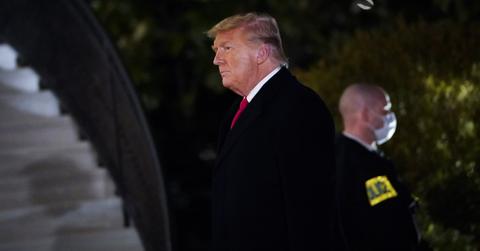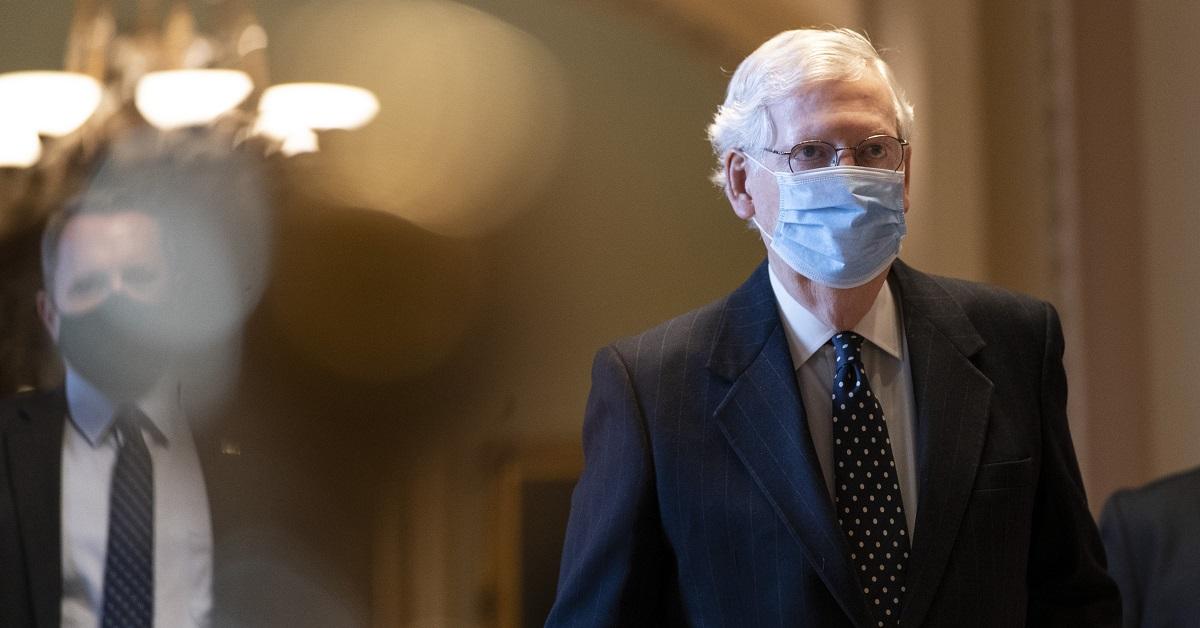Trump Has Been Impeached, But Can He Stand Trial After He Leaves Office?
Published Jan. 14 2021, 11:23 a.m. ET

Near the end of a remarkable and tumultuous term, President Trump made another piece of history, becoming the first president to be impeached twice following riots in the Capitol. Trump's impeachment came just a week before President-elect Joe Biden is set to be sworn in, which means that, unlike his first impeachment, it seems unlikely that Trump will stand trial in the Senate before he has left office.
Can a president be impeached after he is out of office?
President Trump's second impeachment was finalized on Jan. 13, while he was still in office, but that's only one part of the impeachment process. After the House votes to impeach, the process moves to the Senate, where the president stands trial and faces a vote from the Senate. A 2/3 majority of senators must vote for the president's removal in order for him to be removed.

Previously, Senate Majority Leader Mitch McConnell said that he does not plan to call the Senate back into session before Jan. 19, which means that President Trump's trial, if it happens, will happen after Trump has left office. This has led many to wonder whether a president can actually be impeached after they have left office, given that the most obvious punishment from impeachment is removal from office.
Scholars appear to be divided on whether Trump or any other president can face a Senate impeachment trial after they have left office. UNC Law professor Michael J. Gerhardt has argued that Trump should not face a trial because after he leaves office, he will become a private citizen. Even as he made this argument, though, Gerhardt also acknowledged that there are other arguments weighing against it.
"The problem with this argument, however, is that presidents and the other officials who are subject to impeachment are not like the rest of us," he wrote. "Once they leave office and return to their private lives, they are still ex-presidents and former officials who may have committed impeachable offenses in office. Litigation or prosecutions might not be able to get at the misconduct, since the scope of impeachable offenses extends to misconduct that is not an actual crime.”
Senate Democrats are poised to move forward with a trial.
In general, past precedent seems to suggest that public officials who have resigned from their positions can still be impeached, and Democrats in the Senate seem ready to hold a trial for President Trump during the early days of the Biden administration. Biden has already suggested a way for the Senate to work on other legislative matters even as they deal with Trump's trial.
Biden's proposal was to bifurcate each day, spending half of it on impeachment, and dealing with other matters in the other part of the day. Although the details around the trial have not be finalized yet, a trial in the Senate does seem likely. One of the goals of such a trial would likely be conviction, even if it has no practical effect because Trump has already left office.
If the Senate votes to convict, they can take up another vote which would bar President Trump from ever holding office again. Although conviction is far from assured, that second vote is an outcome many Democrats would strongly approve of.